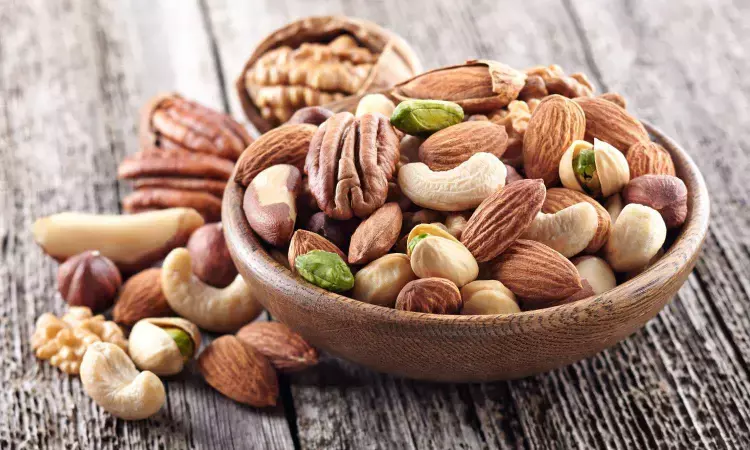- Home
- Medical news & Guidelines
- Anesthesiology
- Cardiology and CTVS
- Critical Care
- Dentistry
- Dermatology
- Diabetes and Endocrinology
- ENT
- Gastroenterology
- Medicine
- Nephrology
- Neurology
- Obstretics-Gynaecology
- Oncology
- Ophthalmology
- Orthopaedics
- Pediatrics-Neonatology
- Psychiatry
- Pulmonology
- Radiology
- Surgery
- Urology
- Laboratory Medicine
- Diet
- Nursing
- Paramedical
- Physiotherapy
- Health news
- Fact Check
- Bone Health Fact Check
- Brain Health Fact Check
- Cancer Related Fact Check
- Child Care Fact Check
- Dental and oral health fact check
- Diabetes and metabolic health fact check
- Diet and Nutrition Fact Check
- Eye and ENT Care Fact Check
- Fitness fact check
- Gut health fact check
- Heart health fact check
- Kidney health fact check
- Medical education fact check
- Men's health fact check
- Respiratory fact check
- Skin and hair care fact check
- Vaccine and Immunization fact check
- Women's health fact check
- AYUSH
- State News
- Andaman and Nicobar Islands
- Andhra Pradesh
- Arunachal Pradesh
- Assam
- Bihar
- Chandigarh
- Chattisgarh
- Dadra and Nagar Haveli
- Daman and Diu
- Delhi
- Goa
- Gujarat
- Haryana
- Himachal Pradesh
- Jammu & Kashmir
- Jharkhand
- Karnataka
- Kerala
- Ladakh
- Lakshadweep
- Madhya Pradesh
- Maharashtra
- Manipur
- Meghalaya
- Mizoram
- Nagaland
- Odisha
- Puducherry
- Punjab
- Rajasthan
- Sikkim
- Tamil Nadu
- Telangana
- Tripura
- Uttar Pradesh
- Uttrakhand
- West Bengal
- Medical Education
- Industry
Daily nut consumption in elderly tied to lower dementia and healthier lifespan: Study

A new study published in the journal of Age and Ageing showed that daily nut consumption may help elderly persons avoid dementia and other forms of impairment. The world nations are dealing with an aging population. The complicated and multifaceted process of aging later in life is linked to a higher risk of morbidity. As people age, cognitive decline is frequent in addition to physical changes.
Dementia risk is increased by age-related increases in oxidative stress, inflammation, and vascular dysfunction, which can cause cell death and synapse loss. Nuts are rich in fiber, phytosterols, polyphenols, monounsaturated and polyunsaturated fats, and a range of vitamins and minerals. It's unknown how nut consumption and disability-free survival relate to one another. This study sought to determine if nut consumption and disability-free longevity differed based on the overall quality of the diet in a population of persons aged 70 and older.
A total of 9916 individuals from the ASPREE longitudinal research of older persons participated in this prospective cohort research. The participants were asked to categorize their normal intake of nuts as either daily [every day or many times a day], weekly [1–2 times/week, commonly 3–6 times/week], or no/infrequent [never/rarely, 1-2 times/month] after completing a 49-item Food Frequency questionnaire.
A composite of first-event death, dementia onset, or chronic physical impairment was the outcome being measured. The link between different amounts of nut consumption and disability-free survival was investigated using Cox proportional hazards regression models, which were adjusted for sociodemographic characteristics, health-related and clinical covariates, and overall dietary quality.
Individuals who regularly ate nuts were more likely to be female, younger, had a smaller waist circumference, and live in greater socioeconomic areas. Also, they were more likely to report having good oral health, never having smoked, having the best nutritional quality tertile, and expressing more athletic ability.
Daily nut eaters were also less likely to develop diabetes or be feeble, although they were more likely to drink more alcohol than was recommended. The individuals who ate nuts every day had a 23% lower chance of attaining the DFS goal over an average of 3.9 years of follow-up than the individuals who ate nuts infrequently or not at all.
Among the ones in the second dietary quality tertile, subgroup analysis showed a substantial correlation between daily nut consumption and a healthy lifespan. Overall, the results of this research imply that daily nut consumption is linked to a longer, healthier lifespan for older persons, even the individuals whose diet may not be the best.
Source:
Wild, H., Nurgozhina, M., Gasevic, D., Coates, A. M., Woods, R. L., Ryan, J., Beilin, L., Govindaraju, T., McNeil, J. J., & Owen, A. J. (2024). Nut consumption and disability-free survival in community-dwelling older adults: a prospective cohort study. In Age and Ageing (Vol. 53, Issue 11). Oxford University Press (OUP). https://doi.org/10.1093/ageing/afae239
Neuroscience Masters graduate
Jacinthlyn Sylvia, a Neuroscience Master's graduate from Chennai has worked extensively in deciphering the neurobiology of cognition and motor control in aging. She also has spread-out exposure to Neurosurgery from her Bachelor’s. She is currently involved in active Neuro-Oncology research. She is an upcoming neuroscientist with a fiery passion for writing. Her news cover at Medical Dialogues feature recent discoveries and updates from the healthcare and biomedical research fields. She can be reached at editorial@medicaldialogues.in
Dr Kamal Kant Kohli-MBBS, DTCD- a chest specialist with more than 30 years of practice and a flair for writing clinical articles, Dr Kamal Kant Kohli joined Medical Dialogues as a Chief Editor of Medical News. Besides writing articles, as an editor, he proofreads and verifies all the medical content published on Medical Dialogues including those coming from journals, studies,medical conferences,guidelines etc. Email: drkohli@medicaldialogues.in. Contact no. 011-43720751


